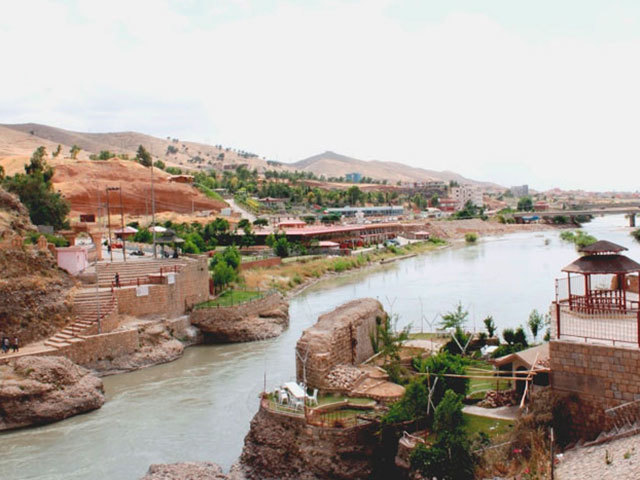
Iraq’s Kurdish region may be able to gain more autonomy and increase crude exports after taking control of territory around the nation’s fourth-largest oil field, analysts from Saxo Bank and JBC Energy said.
Kurdish troops are protecting the Kirkuk oil field and surrounding areas after an offensive by Islamist insurgents last week prompted Iraqi central-government forces to flee.
The Kurdistan Regional Government is “willing to help” Iraq export crude from Kirkuk, Taha Zanghana, KRG’s deputy minister of natural resources, said at a conference in London on Wednesday.
“The current situation could lead to a better environment for exports if the Kurdish region gets more autonomy and can ship its oil, and the south of Iraq continues to grow,” David Wech, said the managing director at JBC in Vienna.
The Iraqi government in Baghdad and the Kurds have been in a dispute over oil revenue and territory for years, including disagreements about Kirkuk.
Tensions increased last month when the Kurds started to export crude to Turkey through their own pipeline without approval. Two tankers have loaded cargoes of crude from the Kurdish region on Turkey’s Mediterranean coast.
The KRG plans to double its crude exports next month to as much as 250,000 barrels a day and has built pipeline capacity that could ship Kirkuk oil to international markets, Ashti Hawrami, KRG’s natural resources minister, said at the Iraq Petroleum Conference in London on Tuesday.
Two more tankers will load oil exported from the Kurdish region at the Turkish port of Ceyhan this week, Hawrami said.
The region will raise exports to 200,000 to 250,000 barrels a day in July, from 125,000 now, he said. Daily shipments may increase to 400,000 barrels by the end of the year.
“The central government has tried to halt exports from the region, but it is weak and the Kurdish north could potentially be heading for independence,” said Ole Hansen, the head of commodity strategy at Saxo Bank in Copenhagen.
“It could potentially mean increased supply from a region that has been relatively stable.”
Exports of Basrah Light, southern Iraq’s main crude, may reach about 2.8million barrels a day next month, according to a preliminary loading plan obtained by Bloomberg News on June 16.
Current Kurdish exports are not big enough to make a difference to global oil markets “compared with what’s coming out of Basrah in the south, but political stability there could attract renewed investment and increase the effort to produce more,” Hansen said.
Kirkuk contains 8.9billion barrels of crude reserves, according to data compiled by Bloomberg. The field and its surrounding area produce 300,000 barrels a day, down from 650,000 to 700,000 before March 2, when the export pipeline to Ceyhan was sabotaged, according to a statement from state-run North Oil.
The government in Baghdad has declined an offer to export oil from the Kirkuk area to Turkey through a separate pipeline controlled by the Kurdish government, Hawrami said.
The recently completed link could ship 325,000 barrels a day of Kirkuk crude, by connecting the area to an existing pipeline that runs through Kurdish territory, he said.